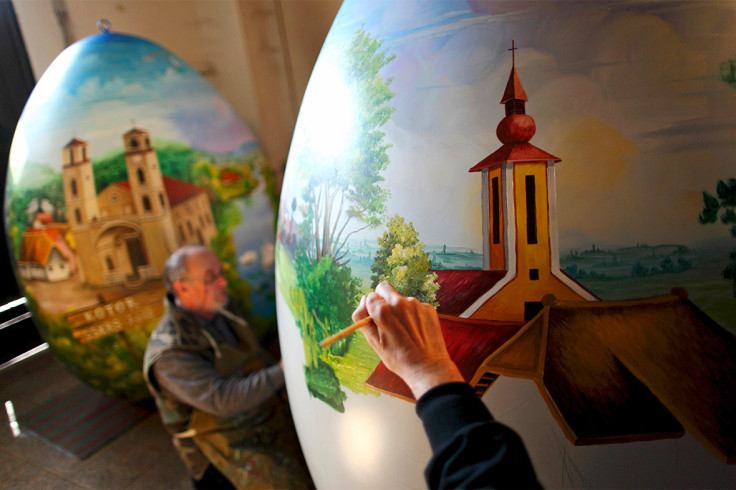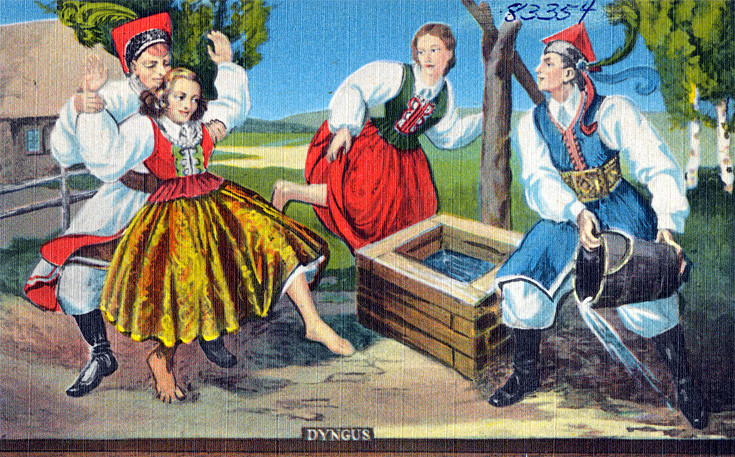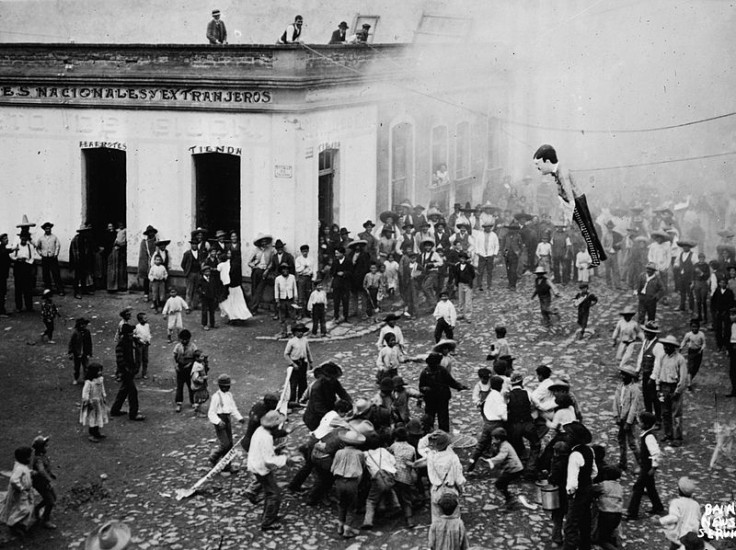Easter 2014: How is it Celebrated Around the World?

The tradition of giving chocolate eggs and decorating real eggs is ancient and pre-dates Christian customs. Engraved ostrich eggs more than 60,000 years old have been discovered in Africa and representations of ostrich eggs in gold and silver were commonly placed in the graves of ancient Sumerians and Egyptians 5,000 years ago.
The custom of the Easter egg originated in the early Christians of Mesopotamia, who stained eggs red in memory of the blood of Christ. In modern Western tradition, children take part in Easter egg hunts, or egg painting, as the custom has evolved.
There are many unusual Easter customs around the world, from pouring water on each other in Poland to Norwegian's celebration of crime novels.
Poland

Easter is one of the main religious celebrations in Catholic Poland, with a number of different customs and traditions.
In one, Smyngus-Dyngus, boys drench each other with buckets of water on Easter Monday.
Otherwise known as lany poniedziałek, meaning Wet Monday, it is said that girls who get soaked will marry within the year.
The origins of the practice come from the baptism of Poland's Prince Mieszko on Easter Monday in 966 AD.
France
In southwest France, a giant omelette is made on Easter Monday. The meal, prepared in the village of Haux, feeds 1,000 people. Omelettes are also made in the Pyrénées, when families prepare the meal with lardons, black pudding, sausage, asparagus and artichokes.
Norway
Easter is such a popular time for Norwegians to read crime novels that publishers release "Easter thrillers" called Paakekrimmen. The tradition is believed to have started in 1923 when a book publisher promoted its new crime novel on the front pages of newspapers.
Guatemala

Whole communities make long, elaborate carpets from sawdust and flowers in the weeks leading up to Easter.Processions of people walk over the carpets on their way to church for mass.
Brazil
One tradition is to create straw dolls to represent Judas Iscariot, then destroy them in the street. In other Orthodox and Catholic Christian communities, such as Greece, Mexico and Spain, effigies of Judas are burned.
Czech Republic and Slovakia
There is an Easter Monday tradition in which men whip women with strips of willow decorated with ribbon and throw water over them. According to legend, the willow is the first tree to bloom in the spring, so the branches are believed to transfer vitality and fertility to the women.
Finland

Finnish children dress up as witches, in a similar fashion to Halloween celebrations. In some parts of western Finland, some people burn bonfires on Easter Sunday. It is a Nordic tradition stemming from the belief that flames ward off witches between Good Friday and Easter Sunday.
Australia
It is customary to celebrate the "Easter Bilby" instead of the Easter Bunny, to raise awareness of the endangered species. Bilbies are desert-dwelling marsupials and are gradually becoming extinct because of habitat loss and change as well as the competition with other animals.
© Copyright IBTimes 2025. All rights reserved.



















